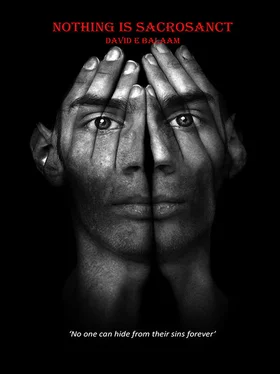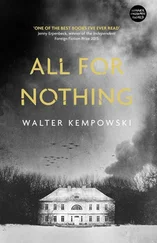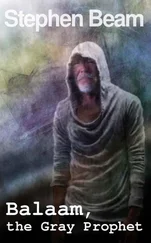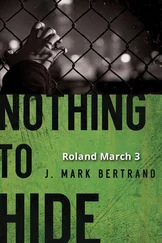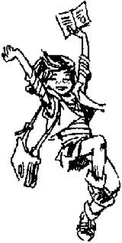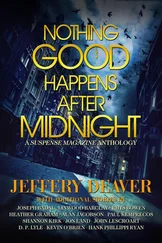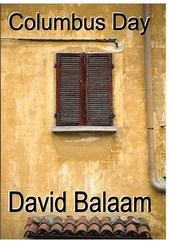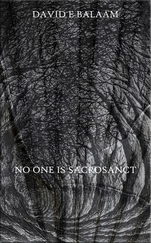After a while, Dr Star gave him a job as an orderly in the medical unit. There he had access to fresh clothes, regular hot meals and even started to interact with other normal decent people. By now he had learnt some English and was able to converse a little - with those he chose to. The population of the displacement camp dwindled over time when relatives had been found or they were allowed to leave having been cleared of any atrocities. One day Dr Star took Marcus to one side. “Marcus, they want to hand you over to the police, in Vienna.” Dr Star spoke slowly so Marcus could understand what he was being told. “The death of your mother is still unexplained, but Major Ferris says it is now a civil matter.”
“I will not go,” is all Marcus would say, looking Dr Star defiantly in the eyes.
Rosa was still massaging him, and he sighed with pleasure at her gentle touch.
Dr Nathan Star had argued on behalf of Marcus as to why the boy was to be handed over, but he was stone-walled every time. “Don’t interfere, doctor. See to the sick.” Was the retort from the commanding officer.
Dr Star’s tour of duty was coming to an end and he was looking forward to going home – back to his wife and five-year-old daughter, Barbara, whom he had not seen for over a year.
The day came. Several of his colleagues were travelling with him and they were to depart by bus to Graz, then a plane to Berne, and finally a flight back to London. Accompanying them were two gravely wounded men; one a soldier and one a civilian, who needed urgent treatment at the Queen Victoria Hospital, East Grinstead in England, where new and successful techniques were being carried out on burns victims. However, the day before departure the young civilian patient died in the middle of the night from trauma. Dr Star was called but nothing could be done for the young man, but there was something he could do for someone else.
With the help of a trusted nurse, they swapped the identities of the dead patient with Marcus’s and bandaged Marcus’s face and arms so he could not be recognised. Six medical staff and two patients left the camp the following day as planned, and arrived back in England four days later. As Marcus's stretcher was carried out to the waiting truck, an orderly was overheard to say, “Blimey, this guy weighs a tonne.”
Marcus stayed with Dr Star and his family in Surrey as their adopted son, although nothing was officially recorded. He went to the local school and sung in the church choir, and was very quick to learn. By the time he was eighteen he was fluent in five languages and had a good head for maths. In 1953 an old friend of Dr Star, who worked at the London Stock Exchange, took Marcus on as an apprentice 'Trader'.
A few days after Dr Star's departure, Major Ferris requested his sergeant to bring Marcus to him for transfer to Vienna but was informed he could not be found.
“What do you mean, sergeant? He has to be here somewhere. Bring me Doctor Star.” He bellowed. The Sergeant seemed unmoved by his superiors’ outburst. “Sir, Dr Star left four days ago to return to the UK. His replacement has not arrived yet.”
Ferris stared momentarily, analysing this information. “Who left with him, sergeant?”
“Doctor Freeman, nurse Anne Cowell, Nurse Sally Peters, anaesthetist Raymond Smith and two patients on stretchers, being transferred to a burns hospital in England, sir.”
“What were their names?” Ferris asked.
“Private Banner and an Austrian civilian, Herr Rosenberg. He was badly burnt in a fire two weeks ago if you remember, sir.” Ferris sat thoughtfully tapping his fingers on the desk. “Sergeant, do a thorough search for Marcus von Hartstein. He has to be somewhere in this camp.”
Nathan Star and his wife were the only ones who knew Marcus's true story, and they took it with them to their graves when they died in a car crash in 1956. Marcus knew he would tell Rosa, as he had Barbara, the same story one day – when the time was right.
It seemed longer than five years ago since Marcus had rescued Rosa from her own nightmare in Armenia, and wondered what would have happened to her if he had left her there to fend for herself.
He felt the warmth of Rosa as she manoeuvred herself into him. “You were asleep I think,” she said playfully. “What were you dreaming about? You started to mumble something.”
“I was . . . remembering. I was remembering how lucky I have been. I do want to help those two young people, Isabel and Charlie, and I want you to help me. Will you do that for me, my dear Rosa?”
Rosa cocked her head to one side and smiled. “You know I cannot refuse you anything, Marcus. When do we start?”
When the sun sets over the River Thames it is one of the most beautiful sights I have had the pleasure to witness, especially in the 'Golden Hour', as the sun dips low, bouncing off the glistening water at low tide; something I have photographed many times. The ice in my Martini has melted, but it still tastes good as I drain the residue and nibble on the sliver of lemon. I always remember him when I drink a Martini Vermouth; Marcus Hartmann, friend, lover, benefactor and . . . and . . . someone I really didn't know that well. Whatever life he lived, I only know him as a kind and gentle man. If he had secrets, which I am sure he did, then they have disappeared with him, wherever he is. From where I am sitting on the small patio of our Victorian terrace house in Barnes, contemplating reaching fifty in a few months, I can see the two large paintings he left Charlie and me, and, although I can't quite see it, I know the Chair is to my left, against the wall. The Chair that captivated me and seduced me. The Chair that taught me Free Will . . . The Chair that brought me into the world of Marcus Hartmann, back in 1979.
1979 Midsummer’s Day
Charlie, my boyfriend, and I had been impressed with Marcus Hartmann, a soft-spoken man of uncertain age, (a moustache always throws me, but I'm guessing around forty) with a guarded smile and an unplaceable accent. We had met him one evening at the pub where we were staying, The Fox & Hounds, and he had invited us back to his house, only a mile away, for a nightcap after closing time. In those days pubs closed at ten-thirty. It was midsummer and the air was humid, and my thin cotton mini dress was sticking to me like wet tissue. It was one of those evenings when the light seemed to go on forever – not knowing when to give up and let everyone sleep. The full moon was making the star-filled sky even more unnatural by ten-thirty – not night, not day – I felt I was in another world, or maybe that was the pint and half of cider talking?
Marcus’s large cottage looked impressive. Typical English rose garden with an arbour and wooden bench seats in the front porch. He opened the heavy wooden front door without unlocking it, which I thought strange; but that was just my city thinking kicking in – it’s not something we do back home. “Come on in,” he said with a smile, guiding me over the threshold with his hand on my clammy lower back.
Chas stood staring, mouth open in awe at the spacious interior. He and I had met at a party the previous New Year’s Eve, and he was all over me the entire evening – very persistent I remember, not taking no for an answer. I knew he only wanted to sleep with me, and like most men of that age, twenty-two, going on twelve, and full of alcohol, sleeping is exactly what they do. He did make up for it the following day, or I should say evening, as we had to sleep off the previous night’s excesses first.
Neither of us had had a lot of lovemaking experience even though I was twenty-three. My first was five years earlier when I was eighteen, and like most first times it was a disaster. Necking, ear-nibbling, breast fondling, thigh touching, and then a hand down the knickers. Hardly seductive. It was also his first time so he was on a learning curve as well. However, after he saw blood on his fingers he ran a mile. There had been one or two others since then, with intercourse, but not knowing what it was supposed to feel like I was never sure of myself, and relationships soon ended.
Читать дальше
